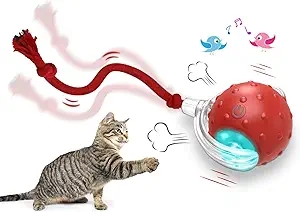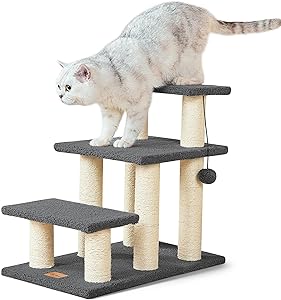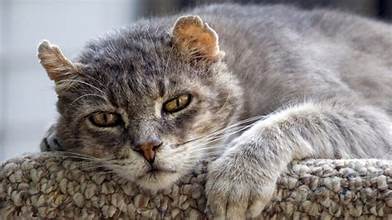As cats age, their needs evolve, requiring adjustments in their care routine. Ensuring your elderly cat remains comfortable, healthy, and happy involves paying close attention to several key areas: diet, exercise, health concerns, home modifications, grooming, and more. Here’s a detailed guide to help you provide the best care for your senior feline friend.
Diet
Nutritional Needs:
High-Quality Protein:
Older cats may need more easily digestible proteins to maintain muscle mass.
Reduced Calories:
To prevent obesity, look for senior cat food that is lower in calories.
Supplements:
Consider supplements for joint health, such as glucosamine and chondroitin, and omega-3 fatty acids for coat and skin health.
Feeding Tips:
Small, Frequent Meals:
Smaller, frequent meals can be more leisurely for elderly cats to digest.
Hydration:
Make sure your cat always has access to fresh water. Feeding it wet food can help increase its water intake.
Exercise
Maintaining Activity:
Gentle Play:
Engage in gentle play sessions with toys that encourage movement without being too strenuous.
Interactive Toys:
Puzzle feeders and interactive toys can stimulate your cat mentally.

Environment:
Accessible Play Areas: Ensure that play areas are easily accessible and free of obstacles that could cause injury.
Health Concerns
Regular Vet Visits:
Bi-Annual Checkups:
Older cats should see the vet at least twice yearly for comprehensive exams.
Blood Work:
Regular blood tests can help detect early signs of kidney disease, diabetes, or thyroid issues.
Common Health Issues:
Arthritis:
Look for signs of stiffness or reluctance to move. Your vet may recommend pain management options.
Dental Problems:
Dental health is crucial. Dental checkups and cleanings can prevent serious issues.
Home Modifications
Comfort and Accessibility:

Soft Bedding:
Provide soft, warm beds in easily accessible locations.
Ramps and Steps:
Use ramps or steps to help your cat access favorite high spots or get onto furniture.
Litter Box:
Ensure the litter box is easily accessible. Consider a lower-sided box if your cat has mobility issues.
Grooming
Regular Grooming:
Brushing:
Regular brushing helps reduce shedding and prevents matting, especially for long-haired cats.
Nail Trimming:
Keep your cat’s nails trimmed to prevent overgrowth and discomfort.
Skin and Coat Care:
Check for Changes:
Regularly check for lumps, bumps, or skin changes that could indicate health issues.
Additional Tips
Comfort and Mental Stimulation:
Routine:
A consistent daily routine to help reduce stress.
Safe Spaces:
Ensure your cat has quiet, safe spaces to retreat to when they need rest.
Monitor Behavior:
Changes in Behavior:
Be alert to changes in behavior, appetite, or litter box habits, as these can be early signs of health issues.
Love and Attention:
Quality Time:
Spend quality time with your cat, providing affection and reassurance.
Attention to these areas will help your elderly cat enjoy their golden years more comfortably and healthily. Regular veterinary care, a proper diet, gentle exercise, and a loving home environment are crucial to ensuring your senior cat thrives.





Pingback: Arthritis In Cats: How To Make Their Lives Easier - Positvley Pets